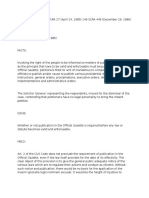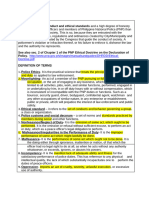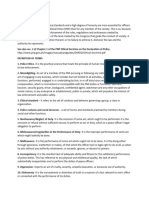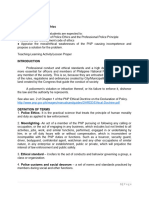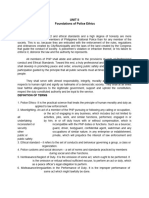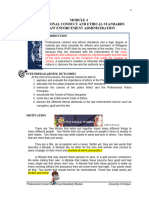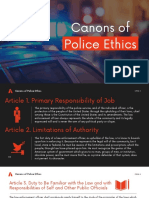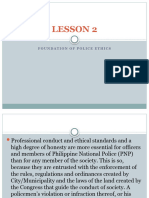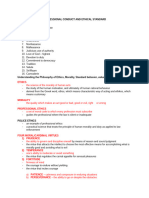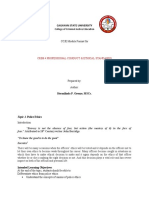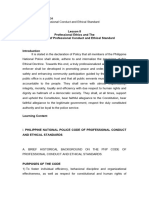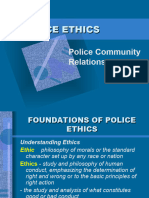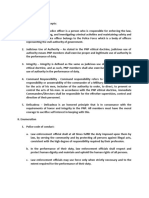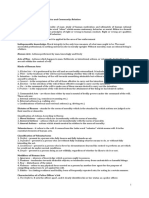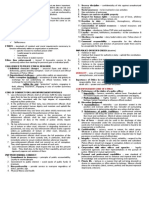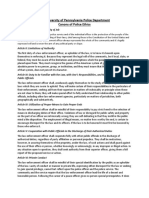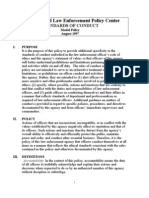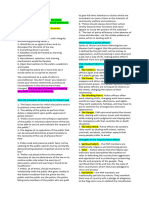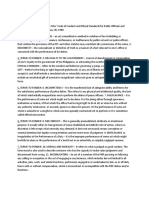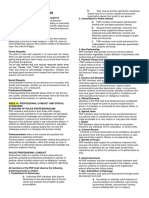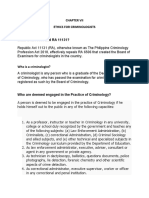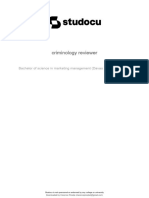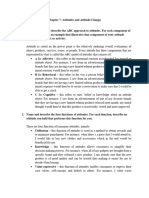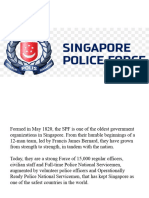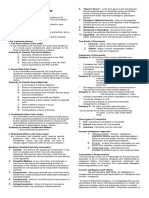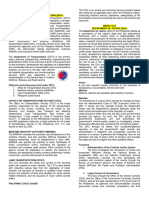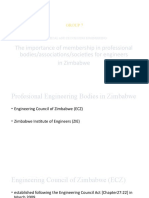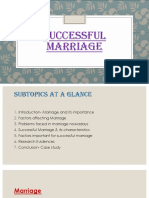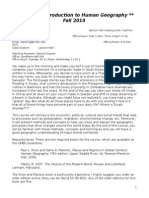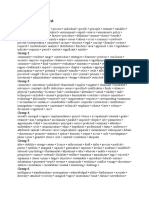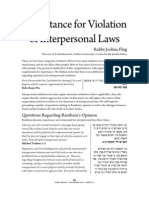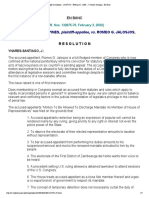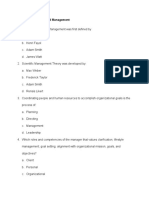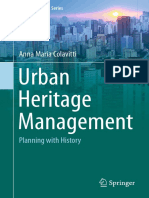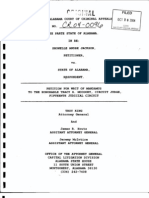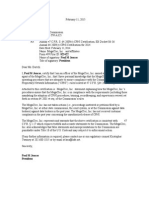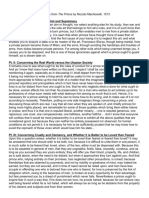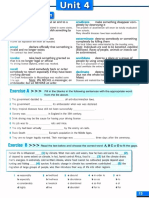0 ratings0% found this document useful (0 votes)
31 viewsChum Right Sed
Chum Right Sed
Uploaded by
writingbecomesatherapyCopyright:
© All Rights Reserved
Available Formats
Download as DOCX, PDF, TXT or read online from Scribd
Chum Right Sed
Chum Right Sed
Uploaded by
writingbecomesatherapy0 ratings0% found this document useful (0 votes)
31 views15 pagesCopyright
© © All Rights Reserved
Available Formats
DOCX, PDF, TXT or read online from Scribd
Share this document
Did you find this document useful?
Is this content inappropriate?
Copyright:
© All Rights Reserved
Available Formats
Download as DOCX, PDF, TXT or read online from Scribd
Download as docx, pdf, or txt
0 ratings0% found this document useful (0 votes)
31 views15 pagesChum Right Sed
Chum Right Sed
Uploaded by
writingbecomesatherapyCopyright:
© All Rights Reserved
Available Formats
Download as DOCX, PDF, TXT or read online from Scribd
Download as docx, pdf, or txt
You are on page 1of 15
CHUMRIGHTSED 14.
Gift – It refers to the thing or right disposed
WEEK 13 - LAW ENFORCEMENT CODE OF ETHICS gratuitously, or any act of liberality in favor of another
1. Police Ethics – It is the practical science that treats who accepts it and shall include a simulated sale or
the principle of human morality and duty as applied to ostensibly onerous disposition thereof. It shall not
law enforcement. include an unsolicited gift of nominal or insignificant
2. Moonlighting – An act of a member of the PNP value not given in anticipation of, or in exchange for a
pursuing or following any calling or occupation, or the favor.
act of engaging in any business, which includes but
not limited to all activities, jobs, work, and similar ETHICS IN THE PHILIPPINE NATIONAL POLICE (PNP)
functions, performed, engaged in, or undertaking by The PNP Professional Conduct and Ethical Standard are
him, in or off duty hours with or without compensation, based on existing laws covering public servants as embodied
which is inconsistent or incompatible with the PNP in the Constitution, Revised Penal Code, RA 6713 (The code
duties or functions. Such as a bouncer, security of Conduct and Ethical Standards for Public Officials and
guard, driver, bodyguard, confidential agent, Employees), and other related statutes. The ethical conduct
watchman and any other occupations of similar and standard of the PNP is further enhanced to fit in their
nature, in any enterprise or establishment, public or nature of their creation as embodied in the Constitution which
private, which will prejudice the interest of law is civilian in nature but military in manner.
enforcement and public safety.
FIVE PILLARS TOWARDS AN ETHICAL PNP MEMBER
3. Ethical standard – it refers to the set of conducts and
behavior governing a group, a class or organization. 1. Background of the applicants – this includes the
qualification like educational attainment and morality.
4. Police customs and social decorum – a set of
norms and standards practiced by members during 2. Type of training – strengthening the behavior of the
social and other functions. selected applicant is believed to be the objective of
the PNP training.
5. Nonfeasance/Neglect of Duty – It is the omission of
some act, which ought to be performed. It is the 3. Response to training – trainees’ obedience to legal
omission or refusal without sufficient excuse, to orders is indispensable in undergoing the training.
perform an act or duty, which as a peace officer’s 4. Determination – trainees’ determination to pursue the
legal obligation to perform. required training.
6. Misfeasance/Irregularities in the Performance of 5. Ability to rise when fall – It is but natural to fail but
Duty – It is the improper performance of some act what matter is the ability to rise especially when put in
which might lawfully be done. hot water. Facing the consequences of our action is a
7. Malfeasance – It is the performance of some act sign of maturity.
which ought not to be done. It is the doing either
through ignorance, inattention or malice, of that which CANNONS OF POLICE ETHICS
the officer had no legal right to do at all, as when he 1. Primordial Police Responsibility – The primary objective
acts without any authority whatsoever, or exceeds, of police is the prevention of crime.
ignores, or abuses his powers. 2. Limitation of Police Authority – As an upholder of the
8. Incompetency – It is the manifest lack of adequate law, policemen must know the limitation in enforcing the
ability and fitness for the satisfactory performance of law, thus:
police duties. This has reference to any physical and a. He must be aware of the limitations which the
intellectual quality, the lack of which substantially people, through law, have placed him.
incapacitates one to perform the duties of peace
officers. b. He must recognize the center of the democratic
system of government, which gives person or
9. Oppression – Imports an act of cruelty, severity, group of persons, absolute power.
unlawful execution, or excessive use of authority.
c. He must ensure that he does not pervert its true
10. Dishonesty – It is the concealment or distortion of character.
truth in a manner of a fact relevant to one’s office or
connected with the performance of his duties.
3. Knowledge of the Law and other Responsibility - The
11. Disloyalty to the Government – Consist of policeman shall assiduously apply himself to the principles
abandonment or renunciation of one’s loyalty to the of the laws, which he is sworn to apply.
Government of the Philippines or advocating the
overthrow of the government. a. He will make certain of his responsibilities in the
particular field of enforcement, seeking aid of his
12. Public official – Includes elective and appointive superior in matters technically or in principles not
officials and employees, permanent or temporary, clear to him
whether in the career or non-career service, including
military and police personnel, whether or not they b. He shall make special effort to fully understand
receive compensation or not, regardless of amount. his relationship with law enforcement agencies,
particularly on matters of jurisdiction, both
13. Public Officer or Employee – It means any person geographically and substantively.
holding any public office or employment by virtue of
an appointment, election or contract, and any person 4. Use of proper Means to Obtain Proper Ends
holding any office or employment, by appointment or
contract in any state-owned or controlled corporation. a. The policeman shall be mindful of his
responsibility to have strict selection of methods
in discharging the duty of his office.
b. Violation of law or public safety and property on conduct, the honor and integrity of all
the part of the officer are intrinsically wrong. They government institution.
are self-defeating if they instill in the public mind. b. He shall guard against placing himself in a
c. The employment of Illegal methods, no matter Position in which the public can reasonably
how worthy the end, is certain to encourage assume that special consideration is being
disrespect for the law and its officers, If the law is given.
to be honored, it must first be honored by those c. He shall be firm in refusing gifts, favors or
who enforce it. gratitude, large or small, which can be public
d. it is the proper performance of duty not the mind, be interpreted as capable of influencing
nobleness of the objective or mission which his judgment in the discharge of his duties.
should guide every police officer.
10. Attitude towards Police Profession
5. Cooperation with Public Officials a. Policeman shall regard the best possible of his
a. The policeman shall cooperate fully with other duties as a public trust and recognize his
public officials in the performance or authorized responsibilities as a public servant.
duties, regardless of party affiliation or personal b. He shall strive to make the best possible
prejudices. application of science to the selection of the
b. He shall be meticulous in law, however, in crime and in the field of human relation.
assuring himself as property, under the law, such c. He shall strive for effecting leadership and public
actions shall guard against the use of his office or influence in matters affecting public safety.
person whether knowingly or in any improper or d. He shall appreciate the importance and
illegal action. responsibility of his office and hold police work to
be an honorable profession rendering valuable
6. Proper Conduct and Behavior service to his community.
a. The policeman shall be mindful of his special e. Through study and experience, a police officer
identification by the public as an upholder of law. can acquire the high level of knowledge and
b. The community and the service require that the competence that is essential for the efficient and
policeman leads the life of decent and honorable effective performance of duty. The acquisition of
person, following the career of policeman gives knowledge is a neverending process of personal
no special pre-requisite. and professional development that should be
c. Being a law enforcement officer is a noble pursued constantly.
profession, it follows that every law enforcer must
think, act, and speak with decency and 11. Impartial Presentation of Evidence
appropriately.
a. Policeman shall be concerned equally in the
7. Conduct towards the Community prosecution of the accused or for the defense of
a. The policeman shall be mindful of his the innocent
responsibility to the community b. He shall ascertain what kind of evidence and
b. He shall deal with individuals of the community in shall present such evidence impartially and
the manner calculated to instill respect for its law. without malice.
c. He shall conduct his official life in a manner that c. He shall ignore social, political and all other
will inspire confidence and trust. distinction among the person involved,
strengthening the tradition of reliability and
d. He will do neither personal preference nor integrity of an officer’s word.
prejudice but rather a duly appointed officer of
the law discharging his sworn obligation. PROFESSIONAL POLICE PRINCIPLE
8. Conduct in Arresting Law Violator 1. Prevention of crime and disorder
a. Policeman shall use his powers to arrest in 2. Cooperation of community
accordance with the law and with due regard to 3. Unreasonable force reduces community cooperation
the rights of the citizen concerned. 4. Use of Reasonable Force When Persuasion Is Not
b. He shall, at all times, have a clear appreciation Sufficient
of his responsibilities and limitation regarding the 5. Impartial Enforcement of Laws
detention of the accused.
6. The Community Are the Police
c. He shall conduct himself in such a manner as
will minimize the possibility of having to use 7. Police Should Not Usurp Judicial Powers
force. 8. Reduction of Crime and Disorder
d. He shall cultivate a dedication to the people and 9. Rule of Enforcement Impartially Observed
the equitable upholding of the law whether in the 10. Police Discretion
handling of the accused or law-abiding citizen.
9. Firmness in Refusing Gifts or Favors
a. Policeman representing the government bears LAW ENFORCEMENT CODE OF ETHICS
heavy responsibility of maintaining, in his As a law enforcement officer, my fundamental duty is
to serve mankind; to safeguard life and property; to protect the
innocent against deception, weak against oppression or • A Filipino policeman is a protector and a friend of the
intimidation and the peaceful against violence or disorder: and people.
to respect the constitutional rights of all men, liberty, equality,
and justice. • His badge is the symbol of the citizen’s faith and trust, his
uniform a mirror of decorum and integrity.
I will keep my private life unsullied as an example to • His whole human person an oblation of enduring love for
all; maintain courageous calm in the face of danger, scorn, or homeland, fellowmen and God.
ridicule; develop self-restraint and be constantly mindful of the • A Filipino policeman emulates the valor of Lapu-lapu,
welfare of others. Honest in thought and in deed both my serenity of Rizal, the leadership of Aguinaldo, the courage
personal and official life. I will be exemplary in obeying the of Bonifacio, the idealism of Del Pilar, the wisdom of
laws of the land and regulations of my organization. Whatever I Mabini and the fortitude of Gomez, Burgos, and Zamora.
see or hear of a confidential in nature or is confided to me in
my official capacity will be kept ever secret unless revelation is • A Filipino policeman has oath for his republic to uphold: to
necessary in the performance of my duty. defend the constitution, honor the flag, obey the laws and
duly constituted authorities. He has covenant with his
I will never act officiously or permit personal feelings, people to comply: to safeguard and protect them even
prejudices, animosities, or friendship to influence my decision, beyond the call of duty. And he has a legacy for his family
with no compromise for crime and with relentless prosecution to fulfill: to bequeath unto them the one and only treasure
of criminals. I will enforce the law courteously and of his life – an unblemished name.
appropriately without fear or favor, malice or ill will, never
employing unnecessary force or violence and never accepting The Policeman and his Badge
gratuities in return. Pointedly enough, it is precisely upon grounds of
reliability and unreliability, fidelity or infidelity in the
I recognize the badge of my office as a symbol of performance of his duties that the badge of a policeman
public faith, and I accept it as a public trust to be held so long assumes paramount significance. This is because the badge
as I am true to the ethics of police service. I will never engage could either be the symbol of the citizen’s faith and trust in the
in acts of corruption or bribery, nor will I condone such acts by policeman or the harbinger of their contempt and derision for
other police officers. I will cooperate with all legally authorized him, all depending upon efficiency or inefficiency in the
agencies and their representatives in the pursuit of Justice. execution of the policeman’s task or mission. But whatever it
may be, the salient point remains that the policeman’s badge
I know that I alone is responsible for my own standard stands out as the embodiment of his entire personality, both as
or professional performance and will take every reasonable a citizen and a public servant, yes, a badge that beckons the
opportunity to enhance and improve my level of knowledge policeman to commit himself to the democratic way of life and,
and competence. I will constantly strive to achieve these even more, to maintain the principle of public accountability.
objectives and ideals, dedicating myself before God and my Furthermore, the badge flashes incessantly to the
chosen profession…. Law Enforcement. mind and heart of the policeman his inescapable concern,
commitment, and obligation to uphold at all times the
TENETS OF DISCIPLINE constitution and be loyal to his country, people and
All policemen at all levels shall adhere to the eight tenets of organization over and above loyalty to any other person or
discipline, which include the following: organization.
a. One of the first signs of discipline is the stage of The Policeman and his Uniform
orderliness and cleanliness of the policeman’s place or The gestures and attitudes of internalizing and
work. If a police station is unkept, people cannot expect externalizing could aptly project to the fore the fierce relevance
the kind of positive responds to their needs. and significance of the uniform of the policeman. This is
b. All police actions must be characterized by courtesy and because what a policeman has internalized or ingested in
discipline. terms of discipline, conduct, insight and decorum is
c. All objectives of the PNP must always be for the public externalized or unfolded by his uniform on points of among
interest and not private interest. The people must feel that others, physical appearance, social graces, professional
they are welcome to approach any member of the PNP for bearing, and personal comportment. More importantly, the
assistance. uniform bespeaks not only of the authority and prerogatives of
the peacekeeper and law enforcer donning or wearing such
d. All citizens must be treated with dignity and respect. uniform but, equally worthwhile, the intellectual, moral, and
e. All police actions must be in accordance with the law. spiritual cast and mold of the person inside that uniform. Just
Respect for human rights and other laws of the land must as what abounds in the heart is spoken by the mouth, so what
be primordial concern in the exercise of Police duties/ values and virtues are acquired and ingested, or not ingested
f. Basic police service must be rendered, equitably for all and acquired, as the case may be, are bound to have a
citizens and must not give in exchange for any favor, repercussion or reflection on his uniform.
reward, or condition. If a policeman is neglectful or remiss in his interior
breeding, upbringing, and posturing, there surges the imminent
g. Involvement of police personnel in syndicated crime and potential likelihood that such shortcomings would find
particularly illegal gambling must not be tolerated. shape and form in his untidy, sloppy, and repulsive uniform.
h. There is no substitute for leadership by example. Police Indeed, a wellmeaning and disciplined member of the force
Commanders, as model of public service, must show realizes without being told that the citizenry looks upon and
proper behavior not only to their subordinates but also to discerns the policeman as distinctively a man among
the people. gentlemen and a gentleman among men, a circumstance and
factor that prompts such citizenry to hail as a gratifying sight
when
Who is a Filipino Policeman?
the men and women in the police service wear their uniform All members of the PNP shall observe the following
properly wherever they may be. professional police conduct:
1. Commitment of Democracy
The Policeman and his Oath a. Uniformed PNP members shall commit
In raising their hand in solemn attestation and themselves to the democratic way of life and
affirmation of their oath, our new breed of peacekeepers and values and maintain the principles of public
law enforcers, imbued and invigorated as they are with their accountability.
collateral concern and commitment to socio-economic
development and nation-building, have plunged themselves, in b. They shall at all times uphold the constitution
consortium with the other relevant agencies and and be loyal to our country, people and the
instrumentalities of the Republic, into a vast battlefield on police organization above their loyalty to any
which to wage constructive wars. person.
It is with greater relevance to have to point out just the
same the sacrificial implication of the oath engendering a 2. Commitment to Public Interest
beatific irony, if we are to consider the fact that while on one a. PNP members shall always uphold public
hand the member of the police service is impliedly exhorted interest over and above personal interest.
under his oath to love his country and endear his family, on the b. All government properties, resources and
other hand, when, in response to the same oath, the supreme powers of their respective offices must be
cause of his official duty exacts upon him to offer his very life, employed and used effectively, honestly, and
he cannot help but leave behind him forever his endeared efficiently, particularly to avoid wastage of
familyand his beloved country. This is because this sacrificial public funds and revenues.
human victim is very much a part and parcel of one profession,
the police profession, whose oblation to GOD, country and
people finds its august limits only in death. c. PNP members must avoid and prevent the
“malversation” of human resources,
To the present-day members of the nation’s police government time, property, and funds.
service, the oath of loyalty to GOD, country and people could
also serve as reminder of their comrades who died in line of 3. Non-Partisanship
duty or otherwise met their untimely demise in the hands of the PNP members shall provide service to everyone without
enemies of societies, yes, offering their lives so that their discrimination regardless of party affiliation
countrymen could live in peace, solace, and security that they recognize their own inadequacies, inabilities and
have learned to enjoy and cherish. limitations as individuals and perform their duties
without attracting attention or expecting the
WEEK 14 - STANDARDS OF POLICE PROFESSIONALISM applause of others. in accordance with existing
PNP members shall perform their duties with integrity, laws and regulations.
intelligence, and competence in the application of specialized
skill and technical knowledge with excellence and expertise. 4. Physical Fitness and Health
Professionalism in policing is of extraordinary importance PNP members shall strive to be physically and mentally
because of the authority vested in law enforcement officers. It fit and in good health all times. Toward this end,
reflects an implicit guarantee that the experience, education, they shall undergo regular physical exercises and
and training of officers uniquely qualify them to meet the annual medical examination in any PNP hospital or
challenges present in a changing and dynamic society. medical facility, and actively participate in the
Physical Fitness and Sports Development Program
Police officers are expected to successfully operate within of the PNP.
many demanding and conflicting roles, and along these lines,
are presumed to possess ethical qualities and competence 5. Secrecy and Discipline
far superior to those of the nonprofessional whose attitudes All PNP members shall guard the confidentiality of
are misaligned with the goals of high standards. classified information against unauthorized
disclosure, including confidential aspect of official
Professionalism refers to the conduct and qualities that business, special orders, communication and other
characterize a particular profession. Professionalism in documents, roster, or any portion thereof, contents
policing necessitates viewing the position of police of criminal records, identities of person who may
officer as a profession, rather than simply as a job. A have given information to the police in confidence
profession is a calling that requires specialized and other classified information on intelligence
knowledge and particular academic training. materials.
POLICE PROFESSIONAL CONDUCT a. Official Business
Police ethics refers to a system of moral values that are generally Members of the PNP shall treat official business
accepted as professional standards in policing. In policing, confidential and shall not impart the same
ethics includes values such as allegiance, honesty, loyalty, to anyone except those for whom it is
and courage. Basically, ethics is 'doing the right thing. intended, or as directed by their superior
officer, or as required by law.
Law Enforcement Ethics in Law Enforcement is extremely b. Special Order
important. The public puts their trust in to law enforcement PNP members shall not divulge to any
agencies to be able to perform their jobs in a responsible, unauthorized person any special order or
ethical, and effective way. This is essential to effective crime classified document which they may be
made accessible to or may receive or may
control and policing communities. pass their hands.
c. Roster b. No member shall inflict, instigate, or tolerate
PNP Members shall not divulge the roster or extra-judicial killings, arbitrary arrests, any act
any portion thereof to any individual, firm or of torture or other cruel, inhuman, or degrading
corporation, or similar entity. treatment or punishment, and
d. Criminal Record
` Contents of criminal record shall s or upon c. Shall not invoke superior orders or exceptional
approval of their superior officers, or as circumstances such as a stateof-war, a threat
required by law. to national security, internal political instability,
e. Identify of Person or any public emergency as a justification for
PNP members shall respect the confidence of committing such human rights violations.
persons who may give information or seek
the aid of the police names and business, 10. Devotion to Duty
or addresses be not made public except a. All PNP members shall perform their duties
when required by law, or which it is with devotion, and manifest concern for public
necessary in the performance of duty. welfare.
b. He shall refrain from engaging in any activity
6. Social Awareness which shall be in conflict with their duties as
All PNP members and their immediate family members public servants.
shall be encouraged to actively get involved in the
religious, social, and civic activities to enhance 11. Conservation of Natural Resources
image of the organization without affecting their PNP members shall help in the development and
official duties. conservation of our natural resources for ecological
balance and posterity as these are inalienable
7. Non- Solicitation of Patronage heritage of our people.
All PNP members shall seek self-improvement through
career development and shall: 12. Discipline
a. Not directly or indirectly solicit influence or PNP members shall conduct themselves properly at all
recommendation from politicians, high-ranking times keeping with the rules and regulations of the
government officials, and prominent citizens, organization.
persons affiliated with civic or religious
organizations with regard to their assignments, 13. Loyalty
promotions, transfer or related advantage. PNP members shall be loyal to the Constitution and the
b. Nor shall they initiate any petition to be police service as manifested by their loyalty to their
prepared and presented by citizens in their superiors, peers, and subordinates as well.
behalf.
c. Moreover, they shall advise their immediate 14. Obedience to Superior.
relatives not to interfere in the activities of the a. PNP members shall obey lawful orders and be
police service particularly in the assignment courteous to superior officers and other
and reassignment of personnel. appropriate authorities within the chain of
d. Not, at any time, suggest, solicit, or command.
recommend to any party or accused with b. They shall readily accept whenever they are
pending case, the employment of any assigned anywhere in the country.
particular bondsman or counsel for his defense c. Therefore, it is taboo for any personnel to
or release. petition in court or in any public forum his
assignment.
8. Proper Care and Use of Public Property
a. PNP members shall promote and maintain 15. Command Responsibility.
sense of responsibility in the protection, proper
care and judicious disposition and use of public a. In accordance with the Doctrine on Command
property issued for their official use or Responsibility, immediate
entrusted to their care and custody just like “a Commanders/Directors shall be responsible for
good father of the family”. the effective supervision, control, and direction
of their personnel, and
b. When the Commander/Director is relieved from
his post, all properties/equipment belonging to b. Shall see to it that all government resources
the government must be turned over to the shall be managed, expended, or utilized in
incoming. A committee for the purpose shall be accordance with laws and regulations and
proper. Hence, it is a taboo for outgoing safeguard against losses thru illegal or
Commander/Director to detach, remove and improper disposition.
bring home or to his new assignment
properties which do not personally belong to POLICE ETHICAL STANDARDS
him. Ethical standards shall refer to established and generally
accepted moral values. Ethical acts to be observed are the
9. Respect for Human Rights following:
a. In the performance of duty, PNP members
shall respect and protect human dignity and
uphold the human right of all persons.
1. Morality Types of Corruption
a. PNP members shall adhere to high standards of 1. Political Corruption
morality and decency and shall set good Political corruption is the use of powers by government
examples for others to follow. officials or their network contacts for illegitimate private
gain.
b. In no instance during their terms of office, among
other things, shall they be involved as owners, • Political is the abuse of public power, office, or
operators, managers, or investors in any house resources by elected government officials for
of ill-repute or illegal gambling den or other personal gain, e.g., by extortion, soliciting or offering
places devoted to vices, nor shall they patronize bribes.
such places unless on official duty and tolerate • It can also take the form of office holders
operations of such establishments in their maintaining themselves in office by purchasing
respective areas of responsibilities. votes by enacting laws which use taxpayers’ money.
c. They shall be faithful to their lawfully wedded • Evidence suggests that corruption can have political
spouses. consequences - with citizens being asked for bribes
becoming less likely to identify with their country or
2. Judicious use of Authority region.
PNP Members shall exercise proper legitimate use of
authority in the performance of duty. 2. Judicial Corruption
• Corruption undermines the core of the
3. Integrity administration of justice, generating a substantial
PNP members shall strive constantly to respect the rights obstacle to the right to an impartial trial, and
of others so that they can fulfill their duties and severely undermining the population's trust in the
exercise their rights as human beings, parents, judiciary.
children, citizens, workers, leaders, or in other
capacities and to see to it that others do likewise. • Judicial corruption refers to corruption related to
misconduct of judges, through receiving or giving
4. Justice bribes, improper sentencing of convicted criminals,
All PNP members shall strive constantly to respect their bias in the hearing and judgment of arguments and
rights as human beings, parents, children, citizens, other such misconduct.
workers, leaders or in other capacities and to see to
it that others do likewise. 3. Police Corruption
Some of the major causes of police corruption can be
dissatisfaction with salary structure, accommodation
5. Humility problems that police officials confront, and working
conditions [such as the staff members compelled to
a. PNP members shall recognize the fact that they perform duties in odd hours, their shift hours may extend
are public servants and not the master of the in emergencies.
people and toward this end; they should not
perform their duties without arrogance.
• Police corruption is a form of police misconduct in
b. They should also recognize their own which law enforcement officers end up breaking
inadequacies, inabilities and limitations as their political contract and abuse their power for
individuals and perform their duties without personal gain. This type of corruption may involve
attracting attention or expecting the applause of one or a group of officers.
others.
• Typical types of police corruption involve extortion,
6. Orderliness bribery, selling drugs, and transferring stolen goods.
PNP members shall follow logical procedure in Additionally, police corruption may refer to patterns
accomplishing task assigned to them to minimize of the same type of police misconduct in a police
waste in the use of time, money, and efforts. department or special unit.
• The most common type of police corruption is the
7. Perseverance acceptance of bribes from those who deal in the
Once a decision is made, all PNP members shall take vices of gambling, prostitution, illegal drinking, and
legitimate means to achieve the goal even in the the illegal use of drugs.
face of internal or external difficulties, and despite
anything which might weaken their resolve in the Bribery, the patron system, and corruption are prevalent in the PNP
course of time. — from recruitment, logistics procurements, and allocation of
funds and resources. The police have also been involved in
POLICE CORRUPTION AND OTHER FORMS OF criminal activities such as narcotics trafficking, kidnapping,
CORRUPTION auto theft, and even murder. The Police System of the
Philippines poses a high risk of corruption, with the Philippines
Corruption is a form of dishonesty or a criminal offense which is National Police (PNP) considered to be one of the most corrupt
undertaken by a person or an organization which is entrusted institutions within the country. Corruption in the Philippine
in a position of authority, in order to acquire illicit benefits or National Police (PNP) and related agencies stems primarily
abuse power for one's personal gain. Corruption means the from the unholy trinity of gambling, drugs, and prostitution that
state of being dishonest especially in matters concerning beset law enforcement organizations worldwide.
money. It creates a very impact to the country’s education,
occupation, living style and mostly the humanity.
WEEK 15 - PROPER DECORUM ON POLICE BEHAVIOR -Albert Einstein
and ETIQUETTE
PERSONAL DECORUM Since the power and authority of the PNP, just like all other
government offices, departments, agencies and
One of the proverbial quotations in Human Resource is that instrumentalities emanate from the people, its personnel
“an organization is as good as its people,” which implies are duty-bound to use them to the best interest of the
that any action, behavior or character manifested by any people. Such great power and authority also require
member of an organization will be reflective of its moral greater responsibility and accountability which demand
fiber. Thus, every member of the PNP, especially the higher standards and ethics to carry out their functions.
police officers, since they serve in the front lines and are
visible to the general public, shall conduct themselves at As such, every member of the organization must
all times in a proper and ethical manner so that the PNP’s observe the proper decorum, as well as avoid
image and credibility will remain unsullied. the taboos in dealing with the community,
Personal Decorum highlights the desired and prescribed identified hereunder:
conduct and manner of each PNP personnel with their
family, at community and in social media. DOs
1) Maintain order and cleanliness.
Family
2) Converse politely.
“The strength of a nation derives from the 3) Act promptly on assistance requested by the
integrity of the home.” -Confucius community. 4) Maintain good working and
interpersonal relationships with the 5)
Article XV of the 1987 Philippine Constitution acknowledges community.
family as the “foundation of the nation” which is 6) Build rapport with the community.
necessary for development. This compels the PNP, as
the vanguard of development, to not only assure the 7) Respect the diversity of people within the
protection of such institution but also to ensure that their community.
respective families will help facilitate development. 8) Spit and urinate in proper places.
DON’Ts:
The following are the prescribed norms and standards on how 1) Discourtesy.
each PNP member must conduct themselves and treat
their respective families, as well as the taboos: 2) Ridicule or scorn any member of the
community regardless of stature, 3) political
DOs affiliation, culture, gender, among others.
1) Respect the sanctity of marriage. 4) Engage in gossips and illegal activities.
2) Respect their spouses regardless of 5) Refuse lawful and just assistance to any
religious convictions, stature and 3) political member of the community.
affiliations. 6) Violate communities’ just policies, regulations,
4) Properly care and love their children. and ordinances. 7) Failure to pay just debts.
5) Assume responsible parenthood. 8) Lobby personal interests or gains.
6) Provide for the needs of the children. 9) Use profane and obscene language in dealing
with the community.
7) Respect and care for the elderly.
10) Lewd action.
8) Respect the rights of the children.
11) 10)Other behaviors that project conduct
9) Encourage family members to participate in the unbecoming of an officer.
promotion, formulation
10) and implementation of State’s policies and Social Media Relations
programs. “The media is the most powerful entity on earth. They have
11) Educate family members. the power to make the
innocent guilty and the guilty innocent.”
-Malcolm X
DON’T’s In the advent of globalization, the social media has become
one of the most influential and visible avenues of
1) Abuse, exploit and neglect children and communication, hence, every member of the
spouse. organization must be cautious of what they post or
2) Humiliate spouse and children. publish online as their individual opinions and actions
3) Discourage family members to participate in will be taken as a reflection of what the organization is.
State’s policies and
DOs
4) programs, as well as join associations that
could improve their wellbeing. 1) Converse politely.
5) Other behaviors that project conduct 2) Act with propriety.
unbecoming of an officer. 3) Establish good social and media relations.
Community 4) Join legitimate associations and organizations
“A life lived for others is a life well live.” without compromising 5) mandated duties.
6) Promote participation and feedback.
DON’Ts
7) Post Best Practices of unit and personnel. 1) Carry a plastic bag or other things other than
an authorized black handbag.
8) Statement for media interview shall only be
given by PIO. 2) Smoke in public places.
9) Avoid obscene action. 3) Drink alcoholic beverages in any place.
4) Stand in one leg while on formation during
DON’Ts: Inspection or any other Command Activities.
1) Disclose and/or publish confidential 5) Wear shades, bag packs and jackets and other
information. unauthorized accessories.
2) Use obscene language.
3) Post obscene materials. In addition to the aforementioned Camp Rules Decorum, every
4) Post unfounded documents and information in police officer must observe the following prohibitions while
the social media. 5) Post materials/documents in uniform:
promoting partisan politics, secession or 6)
recidivism. a. Flashy colored hair and highlights.
7) Any personnel, if directly involved b. Untidy hair.
in an operation or considered as
first c. Bright colored lipstick and make-up for
females.
8) responder, may respond to a
media interview for a recent 9) d. Unshaved mustaches, beard and side beards.
incident/operation. e. Ostentatious display of jewelries.
10) Other behaviors that project conduct unbecoming of f. Inappropriate wearing of shades.
an officer.
g. Tattoo on visible part of the body.
WORK DECORUM h. Chewing gums and smoking in public places.
“Action indeed is the sole medium of i. Carrying backpacks.
expression for ethics.”
-Jane Addams j. Wearing slippers.
k. Holding hands with companion while walking.
The Philippine Constitution provides that “a public office is a l. Nose picking and crotch scratching and other
public trust”, hence, all public officials and government undignified behaviors inpublic places.
employees must guarantee no less than par service
excellence. All PNP personnel as envoys and enforcers of m. Loafing in all public places and other
laws must render their work not only with utmost conspicuous places.
professionalism and excellence but must do so with n. Going to ill-repute places.
integrity and high moral standards. o. Slouching, especially during on-duty and while
in uniform
1. Camp Rules
DOs p. Use of mobile phone while walking.
1) Always wear the prescribed uniform or attire for q. Hands inside pocket.
the day. For police officers, always wear the r. Standing on one leg.
uniform with pride, neatly and snappily through s. Moving in formation.
strict adherence of “LOI Tamang Bihis”.
t. Live interview on TV wearing
2) Always stand in attention when in formation incomplete/improper uniform.
during Command Activities and avoid
unnecessary movements.
3) Always wear PNP ID/ Office ID while inside
camps or offices. 4. Basic Courtesy in Dealing with Superiors
4) Strictly observe traffic rules. DOs
5) Always yield to pedestrians, especially in 1) Treat them with utmost respect.
pedestrian lanes. 2) Properly salute senior officers in uniform while
6) Park vehicles properly as well as observe walking outdoors.
designated parking areas. 3) Properly salute senior officers when reporting
7) Observe politeness and courtesy. indoors.
8) Always put cellular phones on silent mode 4) Always address senior officers with
during command activities. “Sir/Ma’am” when talking with them.
9) Conserve energy. 5) Always respectfully and cheerfully greet senior
officers/NUP/Civilians when walking indoors.
10) 10)Use dark blue or black umbrella under the
rain or extreme heat of the sun. 11) Use 6) Always be mindful of using nice, appropriate
authorized shades, jackets, and shoulder bags and decent words when talking to co-police
or body bags (for ladies). officers and the public in general.
7) While walking together, the subordinate officer 3) Discriminate clients based on stature,
must always be at the left side. affiliation, gender, culture, religion, among
8) While walking with significant others, they others.
should be at the left side always. 4) Make clients wait for some time before
9) While walking, things should be rendering them assistance or referral to other
held by the left hand. agency/police unit.
DON’Ts: 5) Advise them to proceed to other government
1) Ignore superiors. agency without the appropriate formal referral
or endorsement.
2) Treat superiors rudely or insolently.
6) Demanding other considerations aside from
3) Criticize the error of superiors but use it as a regular fees to be collected.
guide in improving one’s actuation.
7) Ask/expect gifts, gratuity, and personal favors.
4) Address/call PCOs by their ranks.
8) Sexual advances.
5) Over-familiarity.
9) Raising voice when dealing with clients.
6) Section 4-3 Basic Courtesy in Dealing with
Peers and Subordinates 6. Etiquette in the Workplace
DOs
DOs
1) Greet and welcome every person visiting their
1) Always respectfully/cheerfully greet peers and office.
subordinates.
2) Always converse in a pleasant manner.
2) Always converse in a tactful and pleasant
manner. 3) Must observe working hours.
3) Always be mindful of using nice, appropriate 4) Provide/issue appropriate receipt to every fees
and decent words when talking to them. collected on legitimate police services for
DON’Ts: police stations.
1) Shun away your peers and subordinates. 5) Communicate with their clients using the
English or Filipino language.
2) Talk in a boastful and haughty manner.
6) Provide prompt, immediate and citizen-friendly
3) Use indecent words and profanities. services to every request/call for police
4) Scorn and ridicule. assistance.
5) Sexual advances. 7) Perform respective duties thoroughly and
6) Ask gift, gratuity and personal favors. efficiently and at all times be discreet,
courteous, diligent and attentive, and call the
7) Rumormongering. attention of their immediate superiors to any
matter which requires their special
5. Basic Courtesy in Dealing with Clients consideration or action.
DOs
8) Keep desk and workplace neat and clean.
1) Greet and welcome every person visiting
their office. 9) Handle properly and conscientiously the
equipment and things entrusted to them.
2) Ask the client about his/her concern and
provide appropriate solutions 3) and/or 10) Answer telephone calls promptly as well as
assistance. observe basic courtesy in answering calls.
4) Provide appropriate seats where customers 11) Respect and treat clients well regardless of
can wait while others are 5) being their stature, religious and political affiliations,
entertained. culture, gender, among others.
6) Converse to their client cordially and 12) Prioritize elders, minors, indigent,
courteously. the poor and the oppressed, people with
7) Respect clients regardless of their gender, disabilities, and pregnant women.
social status, and political 8) affiliations, DON’Ts:
among others. 1) Use of unsavory words to persons visiting their
9) Converse in a pleasant and tactful office.
manner. 2) Making the environment hostile and unfriendly
10) Provide prompt, immediate and citizen- for customer.
friendly services to every 11) request/call 3) Providing favorable services to the wealthy and
for police assistance. famous personalities.
DON’Ts: 4) Making clients wait for some time before
1) Use of unsavory words to persons visiting their rendering them assistance or referral to other
office. agency/police unit.
2) Make the environment hostile and unfriendly 5) All PNP personnel are prohibited from playing
for clients. sports during office hours (8:00 AM-5:00 PM).
However, it may be allowed during Tuesdays
and Thursdays from 4:00 PM onwards as part of e. He shall respond readily and report punctually to all
the physical fitness and sports program. assignments.
(DPRM Memo dtd Oct 24, 2011).
f. Be familiarized with all the administrative and
6) Talking to peers in dialects not known/familiar to operational policies of the police station.
clients.
g. Be responsible in providing crime prevention,
7) Demanding other considerations aside from protection of life and property, apprehension and
regular fees to be collected. prosecution of offenders, preservation of peace and
8) Ignore, delay and hang phone calls. enforcement of regulatory measures within his area.
9) Fail to act on memoranda, letters and requests h. Be in prescribed uniform in reporting to duty.
within fifteen working days from receipt, except i. Be attentive to instructions and information given
otherwise provided in the Rules Implementing during briefing and record all your activities in
the Code of Conduct and Ethical Standards for prescribed manner during your tour of duty.
Public Officials and Employees.
j. He shall, unless otherwise ordered, report to his
10) Conduct disgraceful, immoral or dishonest act. superior for inspection and instruction at the
11) Gross insubordination. conclusion of his tour of duty.
12) Inefficiency and incompetence in the k. When on patrol, be constantly alert and observant in
performance of official duties. everything that takes place within your sight or
13) Refuse to perform official duty. hearing and do not hold conversations with anyone
except in the discharge of duty.
14) Coerce subordinates or clients to advance one’s
interest. l. At night time, be vigilant by watching and frequently
examining and trying accessible doors or entrances
15) Solicit any gift or gratuity from peers, and windows of commercial or public buildings,
subordinates and clients. including vacant or unoccupied houses on his beat.
16) Use position or authority to advance one’s Be ready to investigate all suspicious circumstances
interest. you may encounter. In like manner, be able to check
17) Allow nepotism and political patronage. all uninhabited buildings or dwelling places in the day
time.
18) Excessive public display of affection.
m. As far as practicable, he shall exert efforts to know
19) Use government resources (human, logistical, the identities and other circumstances of permanent
and financial) for personal interest. residents of the area assigned to him and shall keep
20) Scorn and ridicule co-workers and clients. track of movements of the newcomers or strangers
21) Discriminate co-workers as well as clients. transferring to merely loitering in the place. He shall
report his finding without delay.
22) Sexual advances.
n. Be sharp to take note of vehicles parked by day or
23) Rumormongering. staying overnight in the different streets of his beat,
recording their plate numbers, and whenever
POLICE DECORUM possible, the owners thereof and/or drivers or
operators.
“A man who understands decorum is a great
treasure” o. Be observant to all the movements of suspicious
-Mas Oyama persons and vehicles and keep a record of the
observations for ready reference when the need
The PNP is a special league of individuals in the entire arises.
government bureaucracy just like the AFP, because each p. Be ready to report all known suspected places of
individual, especially the police, are committed to sacrifice vice, such as gambling dens, houses of ill-repute,
their interests and lives for the greater good of the people opium dives, hide-outs of persons of doubtful
and the country in general. Accordingly, they must primly, conduct and places frequented by vagrants.
courteously and lawfully delegate their duties and q. He shall keep himself informed of the places in his
responsibilities. area where violations are known or reputed to exist,
and he shall plan and take necessary action, duly
Among the common duties and responsibilities of police advising his superior officer as to the steps being
officers as stipulated in Section 17, Rule II of NAPOLCOM taken.
Resolution No. 93-023 are the following:
r. Be responsible in keeping your badge properly
displayed and be courteous to give your name and
a. Be ready at all times to perform his duties and obey badge number when duly requested for identification
the lawful orders of his superior officers or higher purposes.
authority.
s. Be ready to respond promptly, in the event of any
b. Be responsible for the efficient performance of his disturbance of the peace within his beat or in its
duties and adequate coverage of his beat or post. immediate vicinity, to restore order. Be prepared to
c. Be cooperative and coordinate with other members take immediate steps to bring the offender to the
of his relief, district or other division segments for the police station in case of crime committed, and
achievement of their objectives. endeavor to save life and protect or preserve the
d. Be available for duty at all times.
crime scene until the arrival of the investigator.
t. He shall not leave his beat until properly relieved, 7) Perform such other lawful orders as may be
except when required by the exigencies of the directed to him by his superior officers or higher
service and for unavoidable reasons. He shall keep authority.
record of the same in his memorandum book DON’Ts
indicating the time he left his beat, the reason for 1) Sleep in patrol car.
leaving and the time he returned.
2) Use patrol car for personal interest.
u. He shall take care of lost children by taking them to
the residence of their parents, if located within or 3) Park in inconspicuous and ill-repute places.
near the vicinity of his beat and shall promptly notify 4) Violate traffic rules and regulations except in
his station of such action. If the residence is not extreme emergencies.
known or at some distant location, he shall take such 5) Chew gums and smoke.
necessary actions as may be required by the
circumstances. He shall be observant of school 6) Loaf.
children who are not in classes during the proper 7) Entertain personal acquaintance, friends, and
hours and after making inquiries, as to the reasons relatives.
therefore shall take appropriate action on any case of 8) Patrol alone.
truancy which may come to his notice.
9) Slouch and slacken.
v. He shall take note of all obstructions in the streets or
sidewalks from which accidents may occur, removing 10) Use mobile phone, except when necessary and
them when practicable. He shall also take in the absence of handheld radio.
appropriate action on all nuisances and other matters 11) Take personal pictures (e.g. “selfies”/
affecting the safety and convenience of the public or “groupies”). 12) Eat while on post.
the interest of the city/municipality. 13) Leave post when not properly relieved.
w. He shall exercise vigilance in order to prevent fire or
avoid waste of water; take note of all garbage, dead 8. During Traffic Duty
animals or other offensive matters thrown into the DOs
streets and shall take appropriate action thereon. 1) Enforce all pertinent traffic laws, ordinances or
x. He shall in order to summon aid, give three (3) blasts regulations and shall take appropriate action on
with the whistle and in extreme emergency, he may any violation of law that may come to his
discharge his firearm in the air. attention.
2) Maintain the orderly movement of all vehicles at
y. He shall familiarize himself with the location of the his post with due regard for the safety of
street traffic signs and if he sees them misplaced or pedestrians, and exact compliance of the drivers
tampered with in any manner, he shall rectify the thereof with the laws and regulations pertaining
same. If such signs are missing from their proper to traffic.
location, he shall make proper report of such fact to 3) Take station nearest to the center of the street
his superior. intersection as conditions will permit and shall
z. While on patrol duty, he shall not enter any bar, execute all movements of hand signals visible to
nightclub, theater or any other place of amusement motorists with uniformity and precision.
or business except in the strict discharge of his duty. 4) When a whistle is used in the regulation of
traffic, it shall be in conjunction with the hand
7. During Patrol signal. One blast of the whistle shall mean that
DOs traffic shall stop and two blasts mean that traffic
1) Operate the patrol car at moderate rate of shall proceed.
speed, and in such a manner that will enable him 5) Give his whole attention to his duties at all times.
to observe any condition or occurrence in his 6) He shall not engage in conversation with anyone
patrol beat which may require police attention. except when necessary in line of police duty and
He shall adhere to the methods prescribed for such conversation shall be brief.
foot patrolmen, except as may be otherwise
directed. 7) Respond immediately to emergency calls for
police assistance within a reasonable distance of
2) Report for roll call at his station at the prescribed his post, and if it cannot be done, he shall
time. He shall report hourly to the base control promptly notify his station accordingly.
operator, or such time as may be assigned by
his superior officer. 8) Keep calm and control his temper even under
trying and provoking circumstances. In warning
3) Patrol his assigned beat regularly, paying or correcting a person for a slight infraction of
particular attention to critical areas. the traffic regulations, he shall do so in a firm but
4) Exercise judgment and care with due regard to brief and civil manner, and without obstructing
the safety of life and property when responding the flow of traffic, or creating congestion. When it
to an emergency call. is necessary to arrest a driver for a violation of
5) Be in proper uniform when on duty, unless the traffic regulations, he shall, if possible, order
otherwise directed by his commander. the offender out of the traffic flow to the street
curb, and make such arrest without unnecessary
6) Be alert, attentive, and observant. loss of time or the obstruction of traffic.
9) If assigned to mounted vehicles, have charge of rights known as the Miranda Doctrine, after
the duty of suppressing speeding and reckless which he must ask the suspect to yield to the
driving. questioning or not.
10) In case of emergency, he shall 12) He shall as much as practicable, use a
notify his station, if possible, before leaving. prescribed manual on custodial investigation in
DON’T’s the performance of his duties.
1) Delay assistance. 13) He shall perform such other duties
as may be assigned to him by his superior officer
2) Accord pedestrians and motorists with scorn and or higher authority.
disrespect. DON’Ts
3) Obstruct thoroughfares and passageways. 1) Leave the city or municipality to conduct any
4) Violate traffic rules and regulations. investigation or to perform any act within the
5) Leave his post during his tours of duty without purview of his duties, without the express
permission, except when properly relieved by permission of his immediate superior officer,
another officer. except when in immediate pursuit of a fugitive.
6) Solicit and ask gifts, money, and similar 2) Fabricate evidence.
gratuities. 3) Concoct false witnesses.
7) Falsely charge motorists and pedestrians to
advance interest. WEEK 16 - VIOLATIONS OF PROFESSIONAL CONDUCT
Rule X: Grounds for Administrative Disciplinary Action
8) Connive with other traffic enforcers to indict
motorists and pedestrians. Section 1. In addition to the grounds for administrative
disciplinary action prescribed under existing laws, the acts,
9. During Investigation Work and omissions of any official or employee, whether or not he
DOs holds office or employment in a casual, temporary, hold-
1) Ensure ready references of pertinent penal, over, permanent or regular capacity, declared unlawful or
special, and other related laws when situation prohibited by the Code, shall constitute the grounds for
necessitates further research. administrative disciplinary action, and without prejudice to
2) Acquire a thorough knowledge of the penal laws criminal and civil liabilities provided herein, such as:
and ordinances and the elements that constitute a) Directly or indirectly having financial and material
criminal acts in violation of the various sections interest in any transaction requiring the approval of
thereof and shall acquaint himself with the his office. Financial and material interest is defined
fundamental rules of evidence. as a pecuniary or proprietary interest by which a
3) Have a thorough knowledge of the functions of person will gain or lose something.
the investigators which is charged with the
investigation of criminal offenders, the locating of b) Owning, controlling, managing or accepting
missing persons, the recovery of lost and stolen employment as officer, employee, consultant,
property, and other similar responsibilities. counsel, broker, agent, trustee, or nominee in any
private enterprise regulated, supervised or licensed
4) Familiarize himself with the various types of by his office, unless expressly allowed by law;
criminals, and acquaint himself with their various
methods and practices, organizations, and c) Engaging in the private practice of his profession
associations. unless authorized by the Constitution, law or
5) Follow-up each case assigned to him until there regulation, provided that such practice will not
is a final official disposition of such case. conflict or tend to conflict with his official functions;
6) Render written report on all assignments given
to him. d) Recommending any person to any position in a
private enterprise which has a regular or pending
7) Have such regular hours of duty as may be official transaction with his office, unless such
prescribed by the Station Commander. recommendation or referral is mandated by (1) law,
8) Use scientific methods and procedures in the or (2) international agreements, commitment and
investigation of suspects and witnesses and obligation, or as part of the functions of his office;
shall not resort to violence.
9) Keep his immediate superior officer regularly These acts shall continue to be prohibited for a
informed of the progress and development of period of one (1) year after resignation, retirement,
cases assigned to him. or separation from public office, except in the case
of paragraph above, but the professional concerned
10) Have with him an official notebook in which he cannot practice his profession in connection with
will enter the names of persons in custody by any matter before the office he used to be with,
him and such particulars in each case, and also within one year after such resignation, retirement,
all information and matters relative to the or separation, provided that any violation hereof
discharge of his official duties. shall be a ground for administrative disciplinary
11) As a matter of mandatory procedure, any person action upon re-entry to the government service.
under interrogation for the commission of an e) Disclosing or misusing confidential or classified
offense shall be made aware of his constitutional information officially known to him by reason of his
office and not made available to the public, to
further his private interests or give undue (ii) The acceptance by a public official or
advantage to anyone, or to prejudice the public employee of a gift in the nature of a
interest; scholarship or fellowship grant or medical
treatment; or
f) Soliciting or accepting, directly or indirectly, any gift,
gratuity, favor, entertainment, loan or anything of (iii)
The acceptance by a public official or
monetary value which in the course of his official employee of travel grant or expense for
duties or in connection with any operation being travel taking place entirely outside the
regulated by, or any transaction which may be Philippines (such as allowances,
affected by the functions of, his office. The propriety transportation, food and lodging) of more
or impropriety of the foregoing shall be determined than nominal value if such acceptance is
by its value, kinship or relationship between giver appropriate or consistent with the interest
and receiver and the motivation. A thing of of the Philippines, and permitted by the
monetary value is one which is evidently or head of office, branch, or agency to which
manifestly excessive by its very nature. he belongs.
Nothing in the Code shall be construed to restrict or prohibit
Gift refers to a thing or a right disposed of any educational scientific or cultural exchange programs
gratuitously, or any act of liberality, in favor of subject to national security requirements.
another who accepts it, and shall include a
simulated sale or an ostensibly onerous disposition
thereof. g) Obtaining or using any statement filed
under the Code for any purpose contrary to morals
Loan covers simple loan and commodatum as well or public policy or any commercial purpose other
as guarantees, financing arrangement or than by news and communications media for
accommodation intended to ensure its approval. dissemination to the general public;
Commodatum refers to a contract whereby one of h) Unfair discrimination in rendering public
the parties delivers to another something not consumable so service due to party affiliation or preference;
that the latter may use the same for a certain time and return i) Disloyalty to the Republic of the Philippines
it. and to the Filipino people;
This prohibition shall not include:
(1) Unsolicited gift of nominal or insignificant value not
j) Failure to act promptly on letters and
request within fifteen (15) days from receipt, except
given in anticipation of, or in exchange for, a favor
as otherwise provided in these Rules.
from a public official or employee or given after the
transaction is completed, or service is rendered. As k) Failure to process documents and complete
to what is a gift of nominal value will depend on the action on documents and papers within a
circumstances of each case taking into account the reasonable time from preparation thereof, except
salary of the official or employee, the frequency or as otherwise provided in these Rules;
infrequency of the giving, the expectation of l) Failure to attend to anyone who wants to
benefits, and other similar factors. avail himself of the services of the office, or to act
promptly and expeditiously on public personal
(2) A gift from a member of his family or relative as transactions;
defined in the Code on a family celebration, and m) Failure to file a sworn statements of assets,
without any expectation of pecuniary gain or liabilities and net worth, and disclosure of business
benefit. interests and financial connections; and
(3) Nominal donations from persons with no regular,
n) Failure to resign from his position in the private
business enterprise within thirty (30) days from
pending, or expected transactions with the
assumption of public office when conflict of interest
department, office, or agency with which the official
arises, and / or failure to divest himself of his
or employee is connected, and without any
shareholdings or interests in private business
expectation of pecuniary gain or benefits.
enterprise within sixty (60) days from such
assumption of public office when conflict of interest
arises,: Provided however, that for those who are
(4) Donations coming from private organizations already in the service and a conflict of interest
whether local or foreign, which are considered and arises, the official or employee must either resign or
accepted as humanitarian and altruistic in purpose divest himself of said interests within the periods
and mission. here-in above provided, reckoned from the date
when the conflict of interest had arisen.
(5) Donations from government-to-government entities.
The Ombudsman shall prescribe such regulations as may
be necessary to carry out the purpose of this subsection,
As to gift or grants from foreign governments, including pertinent reporting and disclosure requirements.
the Congress consents to:
(i) The acceptance and retention by public Nothing in this Act shall be construed to restrict or prohibit
official or employee of a gift of nominal any educational, scientific, or cultural exchange programs
value tendered and received as a souvenir subject to national security requirements.
or mark of courtesy;
What Is a Code of Conduct Violation? cognizable by the Sandiganbayan and, in the
exercise of his primary jurisdiction, it may take over,
A code of conduct is a document developed by a at any stage, from any investigatory agency of
company's human resources department. It lays out Government, the investigation of such cases (Sec.
standards of ethical behavior and professional conduct 15(1) R.A. No. 6770; see also Sec. 13(1), Article XI,
employees are expected to maintain internally and during 1987 Constitution);
interactions with clients and partners. A violation of the code Direct, upon complaint or at its own instance, any
means you have acted in a way that goes against the code. officer or employee of the Government, or of any
Doing so leads to consequences, as outlined in the subdivision, agency or instrumentality thereof, as well
document. as any government-owned or controlled corporations
with original charter, to perform and expedite any act
Minor or duty required by law, or to stop, prevent, and
Workplace codes of conduct typically outline correct any abuse or impropriety in the performance
consequences for behavioral violations based on level of of duties (Sec. 15(2) R.A. No. 6770; Sec 13(2) Article
severity. Minor violations are usually treated with an initial XI, 1987 Constitution);
verbal or written warning. Repeated minor offenses can
Direct the officer concerned to take appropriate action
ultimately lead to more strict consequences. Common
examples of violations treated as more minor or typically against a public officer or employee at fault or who
receiving warnings include unexplained tardiness or neglects to perform an act or discharge a duty
absences, inappropriate or unprofessional language with required by law, and recommend his removal,
colleagues or clients, abuses of workplace resources and suspension, demotion, fine, censure, or prosecution,
computer usage and simple instances of insolence or and ensure compliance therewith; or enforce its
insubordination. disciplinary authority as provided in Section 21 or this
Act: Provided, That the refusal by any officer without
Major just cause to comply with an order of the
Major violations are more significant or escalated in Ombudsman to remove, suspend, demote, fine,
nature compared with minor violations. More aggressive censure, or prosecute an officer or employee who is
confrontations with colleagues, supervisors, or customers, at fault or who neglects to perform an act or
for instance, could lead to harsher penalties. Written, discharge a duty required by law shall be ground for
documented warnings and suspensions are examples of disciplinary action against said officer (Sec. 15(3)
possible penalties for major conduct code violations. In R.A. No. 6770; see also Sec 13(3), Article XI, 1987
some instances, if the violation is related to misuse of Constitution);
resources or abuses of power, the employee may be Direct the officer concerned, in any appropriate case,
stripped of some privileges or duties. and subject to such limitations as it may provide in its
rules of procedure, to furnish it with copies of
Severe documents relating to contracts or transactions
Often referred to as terminable offenses, code entered into by his office involving the disbursement
violations considered severe normally result in either a or use of public funds or properties, and report any
demotion or automatic firing for cause. Valid claims of irregularity
sexual harassment, physical threats made against others, to the Commission on Audit for appropriate action
bringing a weapon to work, destroying work property and (Sec. 15(4) R.A. No. 6770; see also Sec. 13(4),
theft are all examples of more severe conduct code Article XI, 1987 Constitution);
violations. Codes normally indicate in the consequences Request any government agency for assistance and
section which types of behavior lead to automatic information necessary in the discharge of its
termination. responsibilities, and to examine, if necessary,
pertinent records and documents (Sec. 15(5), R.A.
Procedures No.6770; see also Sec. 13(5), Article XI, 1987
The conduct code lays out the basic steps when Constitution);
violations occur. If a colleague or client brings a claim
Publicize matters covered by its investigation of the
against an employee, management or HR usually
investigates. When supervisors deal with minor violations, matters mentioned in paragraphs (1), (2), (3) and (4)
they simply go through the verbal or written warning steps. hereof, when circumstances so warrant and with due
Getting documentation even on simple violations is determine what cases may not be made public:
important to establish a pattern. If an employee is fired for Provided further, that any publicity issued by the
repeated offenses, the company needs evidence against Ombudsman shall be balanced, fair, and true (Sec
wrongful termination or discrimination claims. For firings with 15(6)
cause, the company needs to thoroughly document reasons R.A. No. 6770; see also Sec 13(6), Article XI, 1987
for cause and maintain any evidence as support. Constitution);
Determine the causes of inefficiency, red tape,
WEEK 17 - ROLE OF OMBUDSMAN mismanagement, fraud, and corruption in the
Powers, Functions and Duties Government and make recommendations for their
The Office of the Ombudsman shall have the following powers, elimination and the observance of high standards of
functions, and duties ethics and efficiency (Sec 15(7) R.A. No. 6770; see
Investigate and prosecute on its own or on complaint also Sec 13(7), Article XI, 1987 Constitution);
by any person, any act or omission of any public Administer oaths, issue subpoena and subpoena
officer or employee, office or agency, when such act duces tecum, and take testimony in any investigation
or omission appears to be illegal, unjust, improper or or inquiry, including the power to examine and have
inefficient. It has primary jurisdiction over cases
access to bank accounts and records (Sec 15(8),
R.A. No. 6770);
Punish for contempt in accordance with the Rules of
Court and under the same procedure and with the
same penalties provided therein (Sec 15(9), R.A. No.
6770);
Delegate to the Deputies, or its investigators or
representatives such authority or duty as shall ensure
the effective exercise of performance of the powers,
functions, and duties herein or hereinafter provided
(Sec 15(10), R.A. No. 6770);
Investigate and initiate the proper action for the
recovery of ill-gotten and/or unexplained wealth
amassed after February 25, 1986, and the
prosecution of the parties involved therein (Sec
15(11), R.A. No. 6770);
Promulgate its rules of procedure and exercise such
other powers or perform such functions or duties as
may be provided by law (Sec 13(7), Article XI, 1987
Constitution; see also Sec. 18, R.A. No. 6770);
Constitutional Guarantees Insulating the Office from
Political Influence and Interference the organic provisions
finally approved insulated the Office from political influence or
interference by:
▪ giving the Ombudsman and his Deputies, whose
appointments need no Congressional confirmation,
the rank of chairman and members, respectively, of a
Constitutional Commission;
▪ prescribing for them fixed term of Office during which
their salaries cannot be diminished;
▪ removable from Office only by impeachment; and,
▪ Making it an independent office enjoying fiscal
autonomy.
You might also like
- Joseph S. Nye Jr.-Soft Power - The Means To Success in World Politics-PublicAffairs (2005) PDFDocument206 pagesJoseph S. Nye Jr.-Soft Power - The Means To Success in World Politics-PublicAffairs (2005) PDFVale Sánchez100% (8)
- Thongchai Winichakul-Siam Mapped - A History of The Geo-Body of A Nation-University of Hawaii Press (1994)Document281 pagesThongchai Winichakul-Siam Mapped - A History of The Geo-Body of A Nation-University of Hawaii Press (1994)AdinaFarrukhNo ratings yet
- Tañada Vs Tuvera Case DigestDocument4 pagesTañada Vs Tuvera Case Digestthefiledetector100% (2)
- Glaxosmithkline Project ReportDocument87 pagesGlaxosmithkline Project ReportShanky Rana69% (16)
- Joint Statement On Skills (2001)Document3 pagesJoint Statement On Skills (2001)UWE Graduate School100% (1)
- Sws V Comelec 2015Document3 pagesSws V Comelec 2015Genevieve Kristine Manalac50% (2)
- Ethics in Criminal Justice (Midterm Coverage)Document3 pagesEthics in Criminal Justice (Midterm Coverage)Chrisciann RevinNo ratings yet
- OJT-ModulesDocument6 pagesOJT-ModulespiangberneloNo ratings yet
- Crim-4 Module 2Document8 pagesCrim-4 Module 2Mher Buenaflor100% (1)
- Crim-4 NotesDocument8 pagesCrim-4 NotesjamespinianoNo ratings yet
- Foundation of Police Ethics: Learning Outcomes: at The End of The Lesson, Students Are Expected ToDocument11 pagesFoundation of Police Ethics: Learning Outcomes: at The End of The Lesson, Students Are Expected ToAmber EbayaNo ratings yet
- Ethics Module 2Document12 pagesEthics Module 2mark.torrechillaNo ratings yet
- Module 2 - Professional Conduct Ethical StandardsDocument14 pagesModule 2 - Professional Conduct Ethical StandardsNuique Alfred67% (3)
- Ethics Unit 2Document16 pagesEthics Unit 2fliction12No ratings yet
- See Also Sec. 2 of Chapter 1 of The PNP Ethical Doctrine On The Declaration of PolicyDocument5 pagesSee Also Sec. 2 of Chapter 1 of The PNP Ethical Doctrine On The Declaration of PolicyGregorio B. SardeñaNo ratings yet
- PNP Ethical DoctrineDocument97 pagesPNP Ethical DoctrineKuya KhyNo ratings yet
- Criminology 3 Police Ethics and Community Relations By: Poly D. BanaganDocument16 pagesCriminology 3 Police Ethics and Community Relations By: Poly D. BanaganAllysa Jane FajilagmagoNo ratings yet
- Ethics in The Philippine National Police PNPDocument7 pagesEthics in The Philippine National Police PNPMannix BalonzoNo ratings yet
- CRIMC 4 IM Module 4Document21 pagesCRIMC 4 IM Module 4richierose.mesulloNo ratings yet
- Canons of Police EthicsDocument11 pagesCanons of Police EthicsJoanna Marie IINo ratings yet
- CJS Activity 1Document3 pagesCJS Activity 1Asuna YuukiNo ratings yet
- Police Ethics AmdcDocument72 pagesPolice Ethics Amdccharles emmanNo ratings yet
- Lesson 2: Foundation of Police EthicsDocument43 pagesLesson 2: Foundation of Police Ethicsaiia011702No ratings yet
- Cannons of Police EthicsDocument14 pagesCannons of Police EthicsJullie Anne SantoyoNo ratings yet
- Professional Conduct and Ethical Standard v1Document11 pagesProfessional Conduct and Ethical Standard v1salesjudyann0No ratings yet
- Crim4 Topic 1 MidtermsDocument7 pagesCrim4 Topic 1 MidtermsStephen EstalNo ratings yet
- Fairfax City Police General Orders Manual (2023)Document239 pagesFairfax City Police General Orders Manual (2023)OpenOversightVA.orgNo ratings yet
- Police DoctrineDocument4 pagesPolice DoctrineJuvy Ann DurangoNo ratings yet
- Lesson 8Document8 pagesLesson 8unkown pogiNo ratings yet
- Crim 3Document117 pagesCrim 3Quir Nicholas FamorNo ratings yet
- Conduct and Ethical Standards For Public Officials and EmployeesDocument42 pagesConduct and Ethical Standards For Public Officials and Employeesvillazordaangel008No ratings yet
- DILLAGUEDocument5 pagesDILLAGUEJN CNo ratings yet
- Professional Ethical StandardsDocument2 pagesProfessional Ethical StandardspanerjNo ratings yet
- PNP ValuesDocument3 pagesPNP ValuesRonJen VlogsNo ratings yet
- Police EthicsDocument10 pagesPolice EthicsBimboy Cueno100% (5)
- Police Ethics - 1Document6 pagesPolice Ethics - 1Judilyn Ravilas100% (1)
- Ethics 4 5 PFDocument3 pagesEthics 4 5 PFMENDITA RHAZED A.No ratings yet
- Canons of Police Ethics WebDocument3 pagesCanons of Police Ethics WebKhen KhenNo ratings yet
- MODULE: Criminology Integration 1 (Criminal Sociology, Ethics and Human Relation, Correctional Administration)Document17 pagesMODULE: Criminology Integration 1 (Criminal Sociology, Ethics and Human Relation, Correctional Administration)Shinya KogamiNo ratings yet
- Standards of Conduct PolicyDocument7 pagesStandards of Conduct Policycitizeninv1No ratings yet
- Cagayan State UniversityDocument3 pagesCagayan State UniversityStephen EstalNo ratings yet
- Sce 60 PagesDocument60 pagesSce 60 PagesRose Anne MacarioNo ratings yet
- Crim 4 200 TermsDocument11 pagesCrim 4 200 Termsjoey mantosNo ratings yet
- LEAETH Chapter 2Document2 pagesLEAETH Chapter 2reynaldocanlas714No ratings yet
- Ethics of PNPDocument6 pagesEthics of PNPZora IdealeNo ratings yet
- Ethics of PNPDocument6 pagesEthics of PNPZora IdealeNo ratings yet
- Criminology 4 Module 1Document2 pagesCriminology 4 Module 1algericoguevarra2002No ratings yet
- CRIM 4 ReviewerDocument5 pagesCRIM 4 ReviewerMaria Rafaella P. DadoNo ratings yet
- Code of Ethics PresentationDocument41 pagesCode of Ethics PresentationEmerson Tee100% (3)
- Mock Test.Document10 pagesMock Test.RANDILO LUMAYNONo ratings yet
- CPROFCONDocument7 pagesCPROFCONwritingbecomesatherapyNo ratings yet
- Chapter Vii - Ethics For CriminologistsDocument6 pagesChapter Vii - Ethics For CriminologistsMarlboro BlackNo ratings yet
- Criminology ReviewerDocument61 pagesCriminology Reviewer0320-0178No ratings yet
- CHAPTER III-Values, Ethics and Professional Conduct For Police Officers-MswordDocument9 pagesCHAPTER III-Values, Ethics and Professional Conduct For Police Officers-MswordMarlboro BlackNo ratings yet
- SlidesDocument2 pagesSlidesApplegrace Osing Dela CruzNo ratings yet
- Crim 4Document6 pagesCrim 4Marcelino MedelinNo ratings yet
- Command of ResponsibilityDocument4 pagesCommand of ResponsibilityPLO Davao del SurNo ratings yet
- 1.3 Police EthicsDocument73 pages1.3 Police EthicsViewer Delta coyNo ratings yet
- Board of Criminology EthicsDocument2 pagesBoard of Criminology EthicsRomel Tarroza100% (2)
- Module 4 - Ma'Am SagunDocument5 pagesModule 4 - Ma'Am Sagunkaren joy nupia BalidayNo ratings yet
- Pcaes Midterm LessonDocument31 pagesPcaes Midterm LessonDairane CastañedaNo ratings yet
- PNP Ethics Updated 2018 Corpuz PDFDocument82 pagesPNP Ethics Updated 2018 Corpuz PDFRexReyes100% (1)
- PNP Stand On Basic IssuesDocument23 pagesPNP Stand On Basic IssuesalynjerNo ratings yet
- American Convention on Human Rights (Pact of San José)From EverandAmerican Convention on Human Rights (Pact of San José)No ratings yet
- Law of the People's Republic of China on Penalties for Administration of Public SecurityFrom EverandLaw of the People's Republic of China on Penalties for Administration of Public SecurityNo ratings yet
- Specialized Crime and Investigation With Legal Medicine Part 2Document10 pagesSpecialized Crime and Investigation With Legal Medicine Part 2writingbecomesatherapyNo ratings yet
- Consumer Behavior - Attitudes and Attitude ChangeDocument2 pagesConsumer Behavior - Attitudes and Attitude ChangewritingbecomesatherapyNo ratings yet
- Cforphoto - Midterm ModulesDocument12 pagesCforphoto - Midterm ModuleswritingbecomesatherapyNo ratings yet
- Cleorg - Midterm ModulesDocument11 pagesCleorg - Midterm ModuleswritingbecomesatherapyNo ratings yet
- Community PolicingDocument35 pagesCommunity PolicingwritingbecomesatherapyNo ratings yet
- Cincrimjust DoneDocument7 pagesCincrimjust DonewritingbecomesatherapyNo ratings yet
- CINDISECONDocument11 pagesCINDISECONwritingbecomesatherapyNo ratings yet
- CFUNDCRIMDocument14 pagesCFUNDCRIMwritingbecomesatherapyNo ratings yet
- CLEORGDocument4 pagesCLEORGwritingbecomesatherapyNo ratings yet
- CPROFCONDocument7 pagesCPROFCONwritingbecomesatherapyNo ratings yet
- CHARFORMDocument8 pagesCHARFORMwritingbecomesatherapyNo ratings yet
- Lie To MeDocument3 pagesLie To MeLantern360No ratings yet
- ETHICSDocument13 pagesETHICSmahahajNo ratings yet
- Succesful MarriageDocument14 pagesSuccesful MarriageAastha DablaNo ratings yet
- How To Win Friends and Influence PeopleDocument1 pageHow To Win Friends and Influence PeopleluapNo ratings yet
- Regional Office No.: Department of Environment and Natural ResourcesDocument3 pagesRegional Office No.: Department of Environment and Natural ResourcesMai UgayNo ratings yet
- GES 102 SyllabusDocument7 pagesGES 102 Syllabusp3eggrollNo ratings yet
- Academic Word ListDocument2 pagesAcademic Word ListAbeera AhmadNo ratings yet
- Chapter 1 Foundations of ArgumentsDocument21 pagesChapter 1 Foundations of ArgumentsWalaa AlaliNo ratings yet
- Katie ErikssonDocument23 pagesKatie ErikssonJennylyn Unsil LumangkaNo ratings yet
- Repentance For Violation of Interpersonal Laws: Rabbi Joshua FlugDocument7 pagesRepentance For Violation of Interpersonal Laws: Rabbi Joshua Flugoutdash2No ratings yet
- People Vs JalosjosDocument7 pagesPeople Vs JalosjosTheodore BallesterosNo ratings yet
- Chapter 01 Abnormal Behavior in Historical Context PDFDocument34 pagesChapter 01 Abnormal Behavior in Historical Context PDFtylerdsunNo ratings yet
- Nursing Leadership and Management Question and AnswerDocument7 pagesNursing Leadership and Management Question and AnswerCharlene Grace ReginoNo ratings yet
- Part 2 CH 1 2 3 Analysis of The Castle of OtrantoDocument71 pagesPart 2 CH 1 2 3 Analysis of The Castle of OtrantoBatoul NNo ratings yet
- Ethics and MoralityDocument7 pagesEthics and MoralityMarvic AboNo ratings yet
- (The Urban Book Series) Anna Maria Colavitti (Auth.) - Urban Heritage Management - Planning With History-Springer International Publishing (2018) PDFDocument171 pages(The Urban Book Series) Anna Maria Colavitti (Auth.) - Urban Heritage Management - Planning With History-Springer International Publishing (2018) PDFGordan RavancicNo ratings yet
- In Re Shonelle Andre Jackson V State of Alabama CR04-0096 Supreme Court AL - 2004.10.20 Petition For Writ of Mandamus 1 of 3 - 400ppDocument400 pagesIn Re Shonelle Andre Jackson V State of Alabama CR04-0096 Supreme Court AL - 2004.10.20 Petition For Writ of Mandamus 1 of 3 - 400ppPablo MorettoNo ratings yet
- ROBERT JORDAN As A Code Hero QuestionDocument10 pagesROBERT JORDAN As A Code Hero QuestionHarini Iyengar100% (3)
- 2015 CPNI Compliance Statement MegaClecDocument3 pages2015 CPNI Compliance Statement MegaClecFederal Communications Commission (FCC)No ratings yet
- The Prince ReadingDocument2 pagesThe Prince ReadinggetpinnaclednowNo ratings yet
- Unit 4 - Family and AdjectivesDocument7 pagesUnit 4 - Family and AdjectivesBruck FiuterNo ratings yet
- J.S. Furnivall and FabianismDocument28 pagesJ.S. Furnivall and FabianismJody Blanco100% (1)
- Vocabulary Files C1 - Unit 4Document4 pagesVocabulary Files C1 - Unit 4Minh ĐăngNo ratings yet
- Ramayana Centre Act, No 7 of 2001Document4 pagesRamayana Centre Act, No 7 of 2001EmalemNo ratings yet


